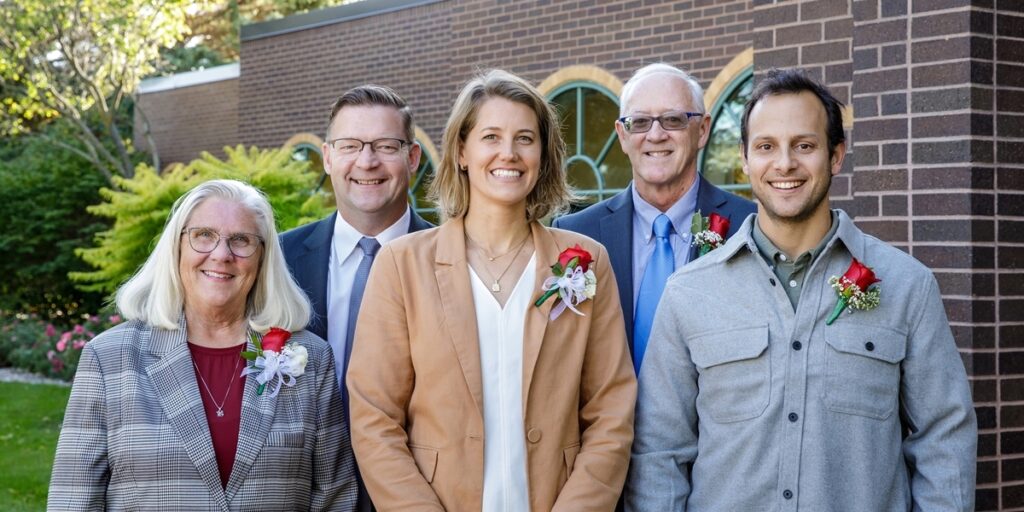On Oct. 18, Northwestern officially launched a Quality Initiative on Vocational Thriving. “Vocation” is a term that often comes up in conversation surrounding career and calling. It is generally acknowledged that vocation is an important concept, but there can be uncertainty about what this word means and what it looks like to do well vocationally.
NW’s President’s Cabinet chose “vocation” to be the focus of a two-year quality initiative (QI)that began this fall and will run through the spring of 2025. Every ten years, NW goes through an accreditation process with the Higher Learning Commission (HLC). A requirement for continued accreditation is that the college must designate a major improvement effort, often called a quality initiative, within the second half of the 10-year accreditation cycle.
After selecting “vocation” as the focus for this QI, the President’s Cabinet asked Dr. Dean Calsbeek, dean of natural and applied sciences, and Dr. Elizabeth Pitts, director of career and calling, to chair the QI effort. Dr. Calsbeek and Dr. Pitts accepted and began by getting input from faculty and staff on their thoughts surrounding the topic of vocation.
Input was gathered through a survey and roundtable discussions. This input informed the focus of the QI proposal and led to the identification of eight action steps.
A volunteer task force comprised of four faculty members and four staff members was established to help delineate the QI’s goals and further establish the eight action steps.
The ultimate goal of this QI effort is for the community of NW to pursue the common good through vocational thriving. This is not limited to occupational positions but extends to the multiple vocations pursued by individuals beyond their paid work as well. The QI task force developed eight action steps geared towards this goal, with steps that address vocational thriving among faculty and staff, students and alumni.
These steps include having themes of vocation infused in employee education series and course curriculum. The action steps laid out also involve creating space and time for vocation to be discussed and reflected on among faculty, staff and students.
Step seven, for example, is that students would be “incentivized to initiate vocation-related conversations.” An effort that has been made toward that end is hosting “Stories of Calling” events in which current students can hear alumni tell their vocational stories.
The “Stories of Calling” events help students to visualize what that looks like through real-life examples, which can spark further questions and conversations.
“Caylan [DeLucia] and Emelie [Laackmann] proposed the idea of taking advantage of having NW alumni Felipe and Janelle Silva, who were back on campus for Homecoming in October, to share more of their vocational story over lunch, and the idea took off from there” said Dr. Pitts.
Two more “Stories of Calling” events have taken place since then, with alumni Dr. Linus Munrengsong Leivon and Sara Veldhuizen Stealy both sharing their stories. “We hope more faculty and staff will suggest other alumni or community members we could highlight for future ‘Stories of Calling’” said Dr. Pitts.
